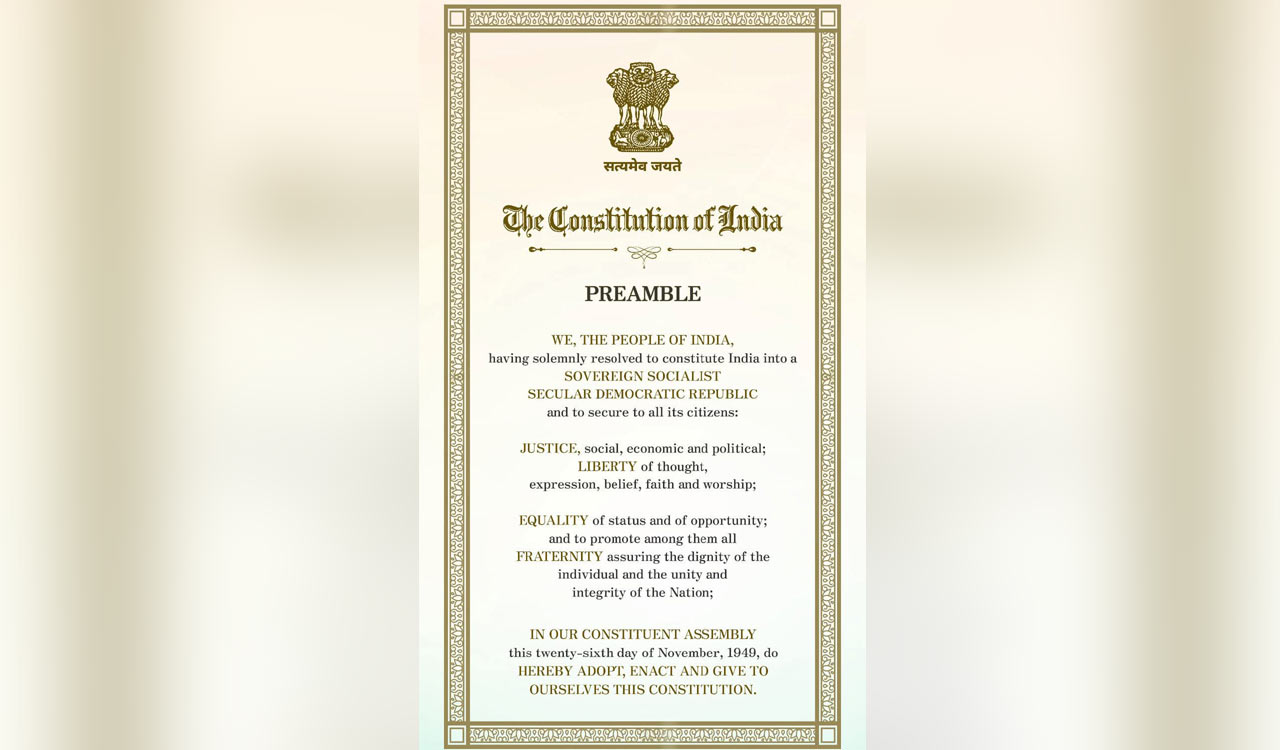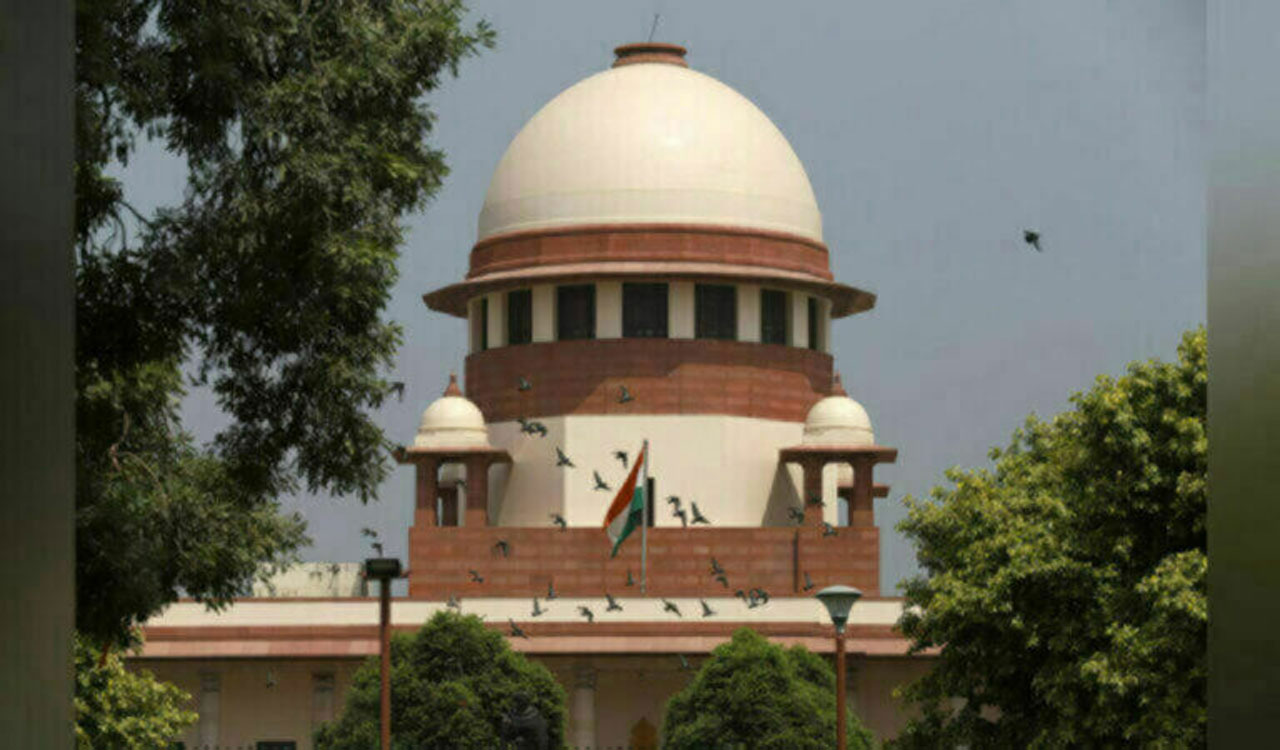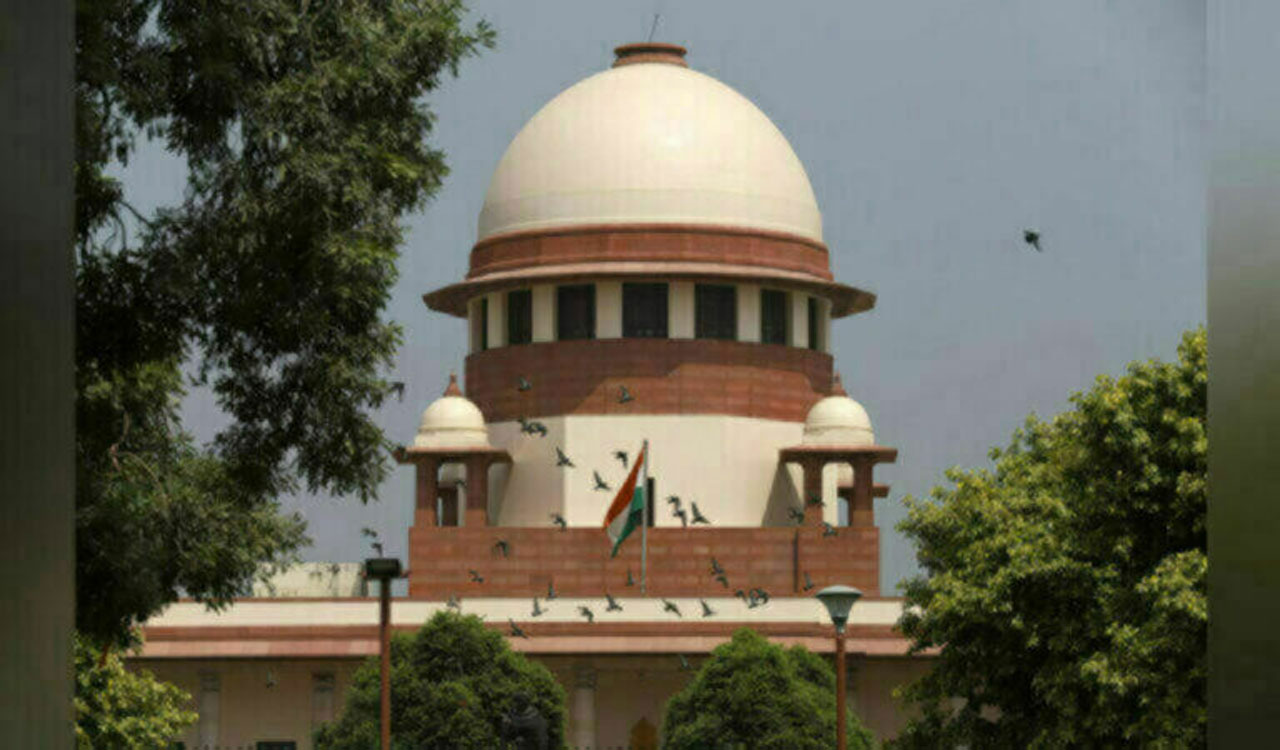Editorial: Preamble prevails
The coexistence of secularism and pluralism are two basic features central to India’s unity in diversity

On the eve of Constitution Day, the highest court of the land delivered a message of reassurance to the citizens when it dismissed petitions challenging the inclusion of the words ‘socialist’ and ‘secular’ in the Preamble to the Constitution through the 42nd Amendment. The Supreme Court has rightly pointed out that these expressions have been widely accepted by the people ever since they were included in the Preamble through the 42nd Amendment Act of 1976. Though the Constituent Assembly initially did not include the terms ‘socialist’ and ‘secular’ in the Preamble, the Constitution is a living document, and Parliament has been empowered to amend it in accordance with Article 368. The apex court ruled that the additions to the Preamble have neither restricted nor impeded legislation or policies pursued by elected governments, provided such actions did not infringe upon fundamental or constitutional rights or violate the basic structure of the Constitution. In the past few years, some among the Hindutva ideologues —representing a fringe section, though — have been advocating changes in the core nature of the Constitution, particularly calling for the removal of the word ‘secular’. Though the BJP leaders and the NDA government have dissociated themselves from such demands, there have been periodical calls for declaring India as a Hindu Rashtra. As the country celebrated Constitution Day, it was a fitting occasion to extol the core principles of the Constitution that include secularism. The coexistence of secularism and pluralism are two basic features central to India’s unity in diversity.
The real tribute to Constitution Day lies in holding those in positions of power accountable for their actions. The Constitution is not just a manual for the government but represents the soul of India, a sacrosanct commitment. On this day in 1949, the Constituent Assembly adopted the Constitution of India which came into effect on January 26, 1950, laying the foundation for the world’s largest democracy. For 75 years, this document has been serving as the holy text and a guiding light for the country. Without any doubt, secularism and pluralism stand out as cornerstones of India’s democratic identity. Unlike the Western model of complete separation between religion and state, the Indian Constitution adopts a model of “equal respect for all religions”, ensuring that the state neither favours nor discriminates against any religion. What makes the Constitution secular is its key features, namely, Freedom of Religion (Articles 25-28), Equality of all before the Law (Articles 14 and 15) and Neutrality of the State in matters of Religion (Articles 27-28), which guarantee the right to freedom of religion, allowing every individual to profess, practice and propagate their faith. In its 75 years, the Constitution has been amended almost 125 times. The ability to amend its provisions has proved to be the Constitution’s strength, enabling it to adapt to the changing needs of a diverse society.
Related News
-
Opinion: Constitution and Preamble, an unbreakable marriage
-
‘Media shouldn’t exaggerate’: SC irked over news reports on hearing over ‘VIP’ visits at temples
-
Supreme Court to test validity of two provisions of 1991 law on religious places
-
Delhi liquor policy scam: SC relaxes Sisodia’s bail condition (Ld)
-
Cartoon Today on December 25, 2024
2 hours ago -
Sandhya Theatre stampede case: Allu Arjun questioned for 3 hours by Chikkadpallly police
3 hours ago -
Telangana: TRSMA pitches for 15% school fee hike and Right to Fee Collection Act
3 hours ago -
Former Home Secretary Ajay Kumar Bhalla appointed Manipur Governor, Kerala Governor shifted to Bihar
3 hours ago -
Hyderabad: Organs of 74-year-old man donated as part of Jeevandan
3 hours ago -
Opinion: The China factor in India-Nepal relations
4 hours ago -
Editorial: Modi’s Kuwait outreach
4 hours ago -
Telangana HC suspends orders against KCR and Harish Rao
4 hours ago




